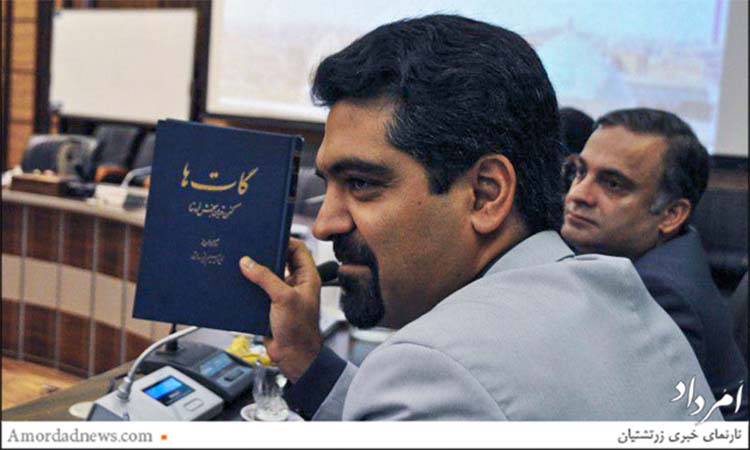Iran Affirms Right of Constitutionally Recognized Religious Minorities
to Run in Local Elections

JULY
27, 2018
Sepanta Niknam has reclaimed his city council
seat in the city of Yazd, southeastern Iran, nine months after he was suspended
by a local court because he’s a member of the Zoroastrian faith.
“I think it would be best that under the current circumstances,
when the country is dealing with many issues, the authorities don’t expel an
elected representative just because of his religious affiliation,” said Kourosh
Niknam, Sepanta’s uncle and a former member of Iran’s Parliament, in an
interview with the Center for Human Rights in Iran (CHRI) on July 20, 2018.
By a two-thirds majority, the Expediency Council, Iran’s highest
arbiter of disputes between state branches, voted on July 21 to amend the Law on the Formation, Duties, and
Election of National Islamic Councils, thereby affirming the right
of constitutionally recognized religious minorities to run in local elections.
Iranian President Hassan Rouhani, who chairs the Expediency
Council, was not present during the vote. No reason was provided for his
absence.
“Our enemies want to upset ethnic and religious minorities whose
rights have been guaranteed in the Constitution and make them lose trust in the Islamic Republic, but the
honorable members of the Expediency Council foiled this plot with their timely
and wise decision,” said Rouhani’s special adviser Ali Younesi in an interview with
the state-funded Iranian Students News Agency on July 23.
After being re-elected to the Yazd City Council in May 2017,
Niknam was forced to step down in September after his unsuccessful Muslim
opponent complained to a local court, which ruled that as a religious minority, Niknam could not be elected to
a council in a Muslim-majority constituency.
The Iranian Constitution recognizes Judaism, Christianity, and Zoroastrianism as
official religious minorities. But in April 2017 the Guardian Council invoked a 1979 speech by the late founder of the Islamic Republic, Ayatollah Ruhollah
Khomeini, to justify its exclusion of minorities from running in local
elections.
The court based its ruling on the decision issued by the Guardian Council, a body of six clerics
and six jurists that vets laws and elections for conformity with Islamic
principles.
Many Iranian officials, including President
Rouhani and Parliament Speaker Ali
Larijani, stated that barring official religious minorities from council
elections was unlawful.
“It’s really upsetting to see doubts cast on a non-Muslim after he
wins the people’s vote in an election and questions are raised regarding
whether he could be a member of a council or not,” Rouhani said in a speech to a group of Sunni Muslim scholars in
Tehran on June 2, 2018.
In December 2017, the Guardian Council rejected a parliamentary amendment reaffirming the right of
minorities to run in local council elections, leaving the final decision to the
Expediency Council.
Niknam, a 33-year-old economist, leads the Zoroastrian Association
in Yazd, home to some of the world’s most revered Zoroastrian religious sites.
Followers of the ancient pre-Islamic faith have lived in the region for
thousands of years but their population in Iran had dwindled to about 25,000 as
of 2011, according to a national census.
The Islamic Republic views any alternative religious belief
system, especially those seeking converts, as a threat to the country’s
majority Muslim Shia makeup and has imprisoned members of the severely persecuted Baha’i and Sufi faiths,
which are not recognized in the Constitution.
No comments:
Post a Comment